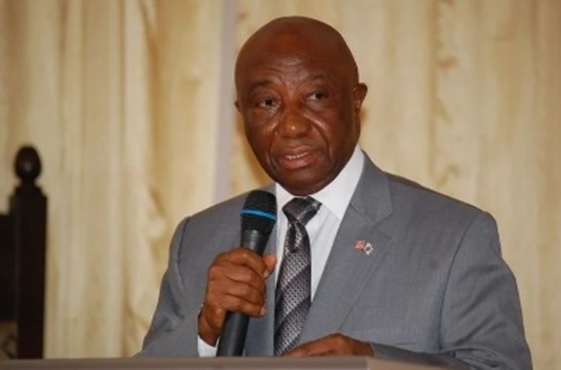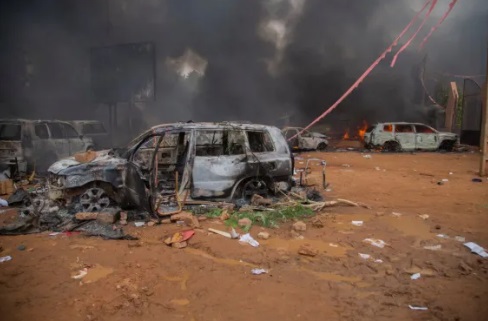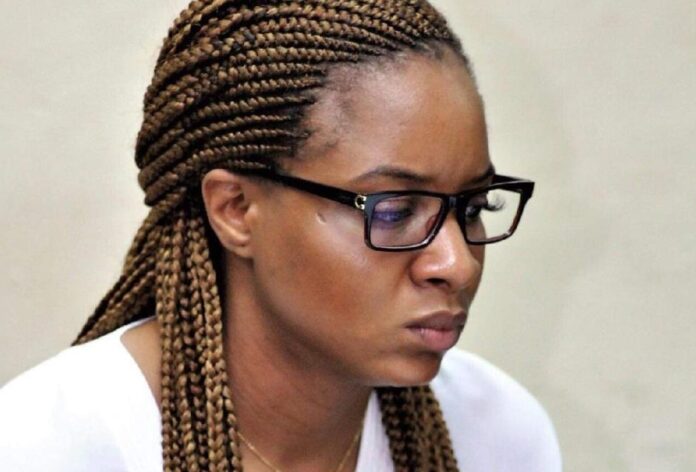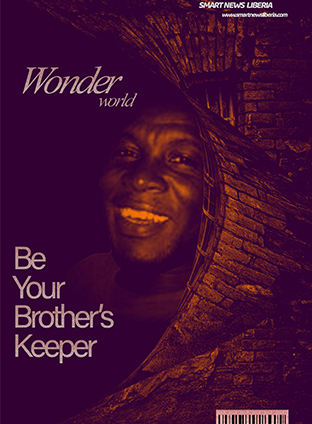ADDRESS BY AMBASSADOR JOSEPH NYUMAH BOAKAI, SR. ON THE OCCASION OF THE 176TH INDEPENDENCE ANNIVERSARY CELEBRATION HELD AT PROVIDENCE, RHODE ISLAND, UNITED STATES
July 26, 2023
Dr. Mator Kpangbai, President
Liberian Community Association of Rhode Island
Officers and Members of the Liberian Community Association of Rhode Island
Fellow Liberians, Ladies and Gentlemen:
It is always my pleasure and joy to be warmly welcomed and commune with members of the Liberian Diaspora Community in the United States whenever I am here, even if on an unofficial business – as I am on this trip – to attend to family and personal matters. I must say, however, that this community of Liberians has a way of pushing you to the limit whenever it comes to the demand for a conversation on some of the vexing issues facing our country. It is in this light that I see a 36-hour notice to serve as an Independence Orator for this year’s Independence celebration as quintessential Diasporan, even as important as this occasion is.
I am honored, however, to be invited to serve as the speaker for the celebration of the 176th independence anniversary of the founding of Liberia. The celebration of this anniversary in the United States is more than just a reflection of the day in the motherland as many of you nostalgically remember it many years back; it should also be a moment to ponder over the question of why after 176 years, we are still groping in the dark and not even a minimum reflection of the heights attained by the United States, a country from whom it is usually believed we got the inspiration of statehood.
Ladies and gentlemen, permit me to speak to you on this momentous occasion on the topic “Society Rebrand: Creating an Equal Future for Liberians.”
Although it has largely been romanticized as the establishment of the first black republic in Africa and a necessary project to escape the throes of slavery, and arguably the continent’s first self-governing country, the founding of Liberia was inspired by noble ideals; ideals of freedom, equality and human dignity; values intrinsic to the aspiration of all persons and their personal development.
But the unfolding formation of the Liberian state, in spite of the lofty ideals of the founders, was soon to be fraught with political, economic and social fissures – largely occasioned by bad leadership – that has and continues to threaten the very foundation of the country and the desire to create a just and fair society. As a result, “state-building” as opposed to “nation-building” became and continues to be the common object of the ruling elite, where the state is used as an agency for elite corruption and social and economic deprivation.
A Reflection
On the 176th anniversary of the founding of our country, it is fitting to reflect on our past; how far we have come, where we are and where we hope to go. Either by design or by error, we must admit that our system, as it were, has contributed in a way to many of the inequities in the country, thus, depriving many of our people of a voice in their own affairs, and of the opportunities for a better and dignified livelihood.
Politically, the central state system, where decisions about the affairs of the country are made in Monrovia, with little participation by other citizens across rural and urban communities, has been one of the major causes of inequality in society. It is not surprising, therefore, that the nature of our governance system is such that the Liberian state has become predatory, with few people illegitimately using the institutions of the state to accumulate and control wealth at the expense of the majority in society.
Instead of the ruling elite personalizing the resources of the state, a more participatory engagement in governance and decision-making by all Liberians in my view, guarantees a more wholesome and functioning society.
Similarly, the economic foundation of our development has left much to be desired as the nature of the Liberian economy underlies some of the strains in our society.
Liberia is largely an agrarian society with an abundance of natural resources. However, the majority of the active population operates in subsistence agriculture with little opportunity for growth. At its expense is a concession regime supported by Liberia’s rich endowment of natural resources, where these commodities are extracted with little value addition. The irony is that while commodity extraction has supported the economy over the years and increased growth, such growth has been unequal because we have not plow profits back into development to benefit the majority of our people.
Hence, “growth without development” – where economic growth based on commodity extraction has little to show in terms of palpable development for the public good. The result is that only a few people benefit, while the majority, many of whom work in the less-supported agrarian sector are left out. With a third or more of the population poor, and a historic rural neglect despite abundant resources, it calls for a “substantial rethinking” of how we do business and order our society.
It can equally be argued that the political and economic foundations of the Liberian state have also provided the undercurrents of social tensions in our society. Age-old political patronage and huge economic and wealth disparity, have created a social gulf between a few groups of people, their social, political, and economic networks, and a large section of the population, many of whom live far below the poverty line. With the delivery of social services including health and education highly unequal, the result is public mistrust of the governing elite, a poor relationship between the state and its citizens, and political and other social conflicts.
Rebranding the Society and Looking Forward to an Equitable Future
After 176 years of independence, it appears improbable to change the very nature of an old country like Liberia with all the trappings of a society much afflicted by the vestiges of an old order rooted partly in the origin of the state. But it is possible!
I believe with the right leadership to mobilize citizens to work, we can make the changes required to transform the country and ensure an equitable society. Given my experience, years of interaction and knowledge about Liberians at all levels of society, I know for sure, we deeply love our country, and long for genuine peace, reconciliation and development. We, therefore, must make the hard decisions necessary to begin the steps of transformation.
First, the crises of Liberia are crises of governance. It does not take much for an observer of the Liberian Society to understand that much of the country’s problems are intrinsically related to governance. This is why addressing the issues of governance is foremost. We must act with deliberate resolve that governance will not be the exclusive preserve of a few people, and that the nature of governing, as it is, must be improved to include the broad participation of the people, including those in rural communities, in the decision-making process.
This means the constitutional review process and reforms initiated by our government in the last term, which include decentralization, local service delivery and local government should be fast-tracked. When people are able to determine their welfare and seek their own solutions based on local context, the impact becomes more concrete. It is my view that when governance is shared, marginalization is much more tamed and equity becomes more visible. Similarly, strong governance outcomes are obtained with a focus on democratic tenets such as accountability, transparency, the rule of law, and functional and capable institutions that are able to provide effective public service. When society shares the values of good and participatory governance it becomes more functional.
Second, the economy must be made to work for everyone. It means pursuing a diversified economy that leverages the country’s comparative advantage in agriculture in particular, where more than 70% of the labor force operates. With 60% of the population made up of young people, the demographic dividend on the economy as a result of effectively deploying this cohort, especially in agriculture, will not only increase productivity but mitigate poverty nationwide. I believe as the economy opens up, and more Liberians become involved, economic wealth can then be leveraged to promote a just and equitable society, where every Liberian can live a dignified life.
Third, historical social cleavages based on political, economic, social, and cultural lines, and other stereotypes are adversarial to the values of an equitable society. It is common knowledge that these cleavages particularly defined the relationships between the descendants of the settler class who founded the state and their African kinsmen along the Pepper Coast. In later years, cleavages were perpetrated by ethnic dominance in politics. But as I have mentioned, providing equal opportunity to all Liberians in all spheres of national life including the economy and governance removes these cleavages and mitigates their associated tensions. In addition, access to social services such as quality education and healthcare will help develop well-grounded citizens including a capable and productive labor force able to thrive in a society based on merit. More importantly, reconciliation and nation-building, with a common national aspiration will serve as guardrails against social tensions and conflicts.
Leveraging Relationship with the United States
Liberia’s relationship with the United States is spoken about in glorious terms by every Liberian, myself included. But as we celebrate 176 years since our founding, we are yet to show how we have made this traditional relationship work for us in ways that have helped transform the country. This is not to suggest, however, that I am not cognizant of the debate over the dynamics of nearly two centuries of a relationship nurtured across the Atlantic. But given the long relationship, it is a bit discomforting to be found debating about how we as a country are still struggling to come to terms with the extent to which we think the relationship might benefit us.
I believe we deserve more, but it is my view that we cannot ask the United States to do for us what we can do for ourselves, including leveraging the relationship for the good of our country. For example, how might we expect American taxpayer money to support our development when government officials embezzle public funds with impunity and government officials personally pocket taxes raised locally, or, why do we not speak up when the rule of law is violated but expect America to raise her voice on our behalf?
I am of the fervent convictions that we can make the relationship work when we properly partner with the United States in ways that promote an equitable society. In this light, working with the US to build our democracy, to end the culture of corruption and impunity and to promote deep economic and cultural cooperations, while collaborating on serious global challenges like climate change and international security cooperation will help lift the relationship to a level beneficial to both countries.
The Role of the Diaspora Community
The role of the Diasporan community in the United States is also crucial in the effort to build an equitable society and to help improve the country’s political, economic and social conditions. Over the last few decades, a steady stream of Liberians immigrating to the United States has built a sizable and strong community, which for many years has left an indelible mark on Liberia’s political, economic and social life. I believe you still have a pivotal role to play and can be an important partner in rebranding the country and improving our society.
As they say, you must put your money where your mouth is. That means you must lend your wealth, expertise, skills and your network to this effort. I understand this is not a one-way street. You have concerns about security, infrastructure, utilities, healthcare, education, etc. I can promise you that I will work with all Liberians to create an enabling environment that would support you to thrive and contribute to the development of our beloved country.
Conclusion
Ladies and gentlemen, our country is at the crossroads. Liberia holds so much promise, but that promise, as envisaged originally by the founders, has faced many stumbling blocks over a century of statehood. Many of these problems are foundational and have their roots in the origin of its unique statehood in Africa. But many more have been the result of recent deficiencies in leadership. I have said on many occasions that Liberia is not a poor country, but the problem of this country is mainly triggered by the lack of sound and honest leadership. It is this leadership we promise the Liberian people and together we can build a country with a vision aimed at promoting a functional and equitable society for generations to come.
Thank you!
I wish you and all Liberians back home and in the rest of the Diaspora a HAPPY 26th.
May God bless us all and save our country.







